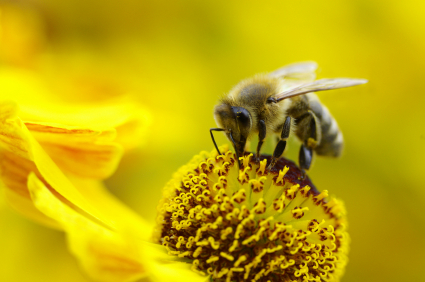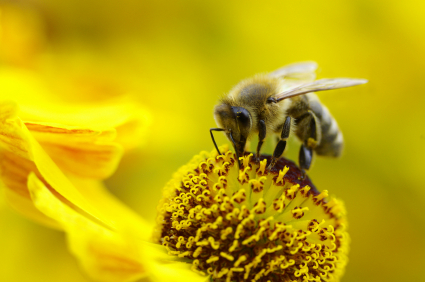 I recently wrote about a study, funded by the German chemical giant Bayer, purporting to show that Bayer’s blockbuster pesticide clothianidin doesn’t harm honeybees when applied as a treatment to seeds.
I recently wrote about a study, funded by the German chemical giant Bayer, purporting to show that Bayer’s blockbuster pesticide clothianidin doesn’t harm honeybees when applied as a treatment to seeds.
The EPA had required the study before it would register clothianidin. Years before it finally got the study in 2007, the EPA granted the neonicotinoid pesticide “partial registration,” and farmers promptly began to apply it to millions of acres of farmland across the country. Meanwhile, a mysterious phenomenon called “colony collapse disorder” arose — across the nation, beekeepers were finding it increasingly impossible to keep their hives alive.
To make a long story short, the EPA eventually accepted Bayer’s study and granted clothianidin full registration in early 2010. But as I reported earlier, a leaked document (PDF) from November shows that two EPA scientists had reviewed that Bayer study and found it wanting. The study had “deficiencies,” they wrote, that rendered it unacceptable.
The study was clearly flawed — it appeared to let test and control bees range widely and forage on both clothianidin-treated and non-treated fields. “When I looked at the study,” Penn State entomologist James Frazier told me in a phone interview, “I immediately thought it was invalid.”
Well, Bayer has now responded to critiques of the study on its website. Lamenting the “unauthorized release” of the recent EPA memo, the agrichemical giant declared:
The study referenced in the document is important research, conducted by independent experts and published in a major peer-reviewed scientific journal. The long-term field study conducted in accordance with Good Laboratory Practices (GLP) by independent experts using clothianidin-treated seed showed that there were no effects on bee mortality, weight gain, worker longevity, brood development, honey yield and over-winter survival. The EPA reviewed and approved the study protocol prior to its initiation and it was peer-reviewed and published in the Journal of Economic Entomology*. Upon reviewing the results of the long-term trial, the Agency noted the study as “scientifically sound and satisfies the guideline requirements for a field toxicity test with honey bees.
“Independent experts,” huh? Not really — Bayer paid for that study.
But here’s the important thing about that response: It contains no substantial defense of the methodology, and no attempt to explain its obvious flaws. The response, essentially, is that the EPA initially approved the study, therefore it is valid. Of course, in that “unauthorized release,” EPA scientists explicitly withdrew approval citing “deficiencies” — and Bayer has no comment on those concerns.
For me, Bayer’s hollow response actually raises the level of alarm about what clothianidin is doing to our honeybees rather than mutes it.
As I reported before, EPA continues to stand behind Bayer despite its own scientists’ concerns. If you want to let the agency’s administrator, Lisa Jackson, know what you think about that decision, check out Pesticide Action Network’s petition.




